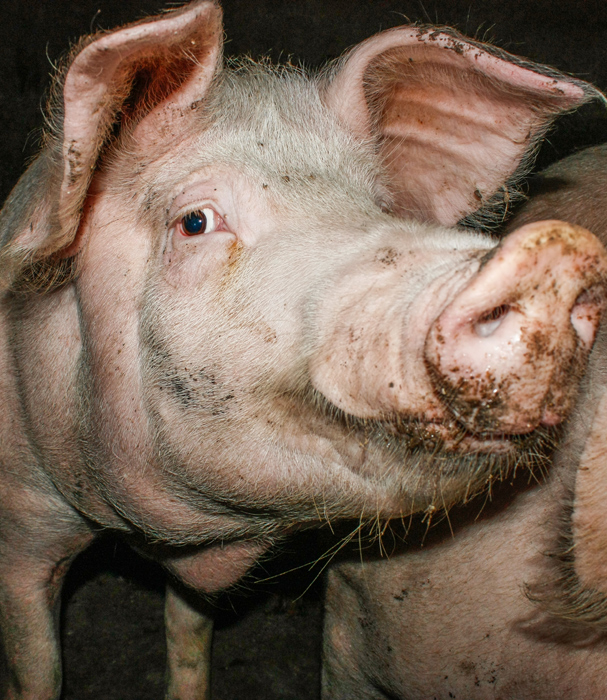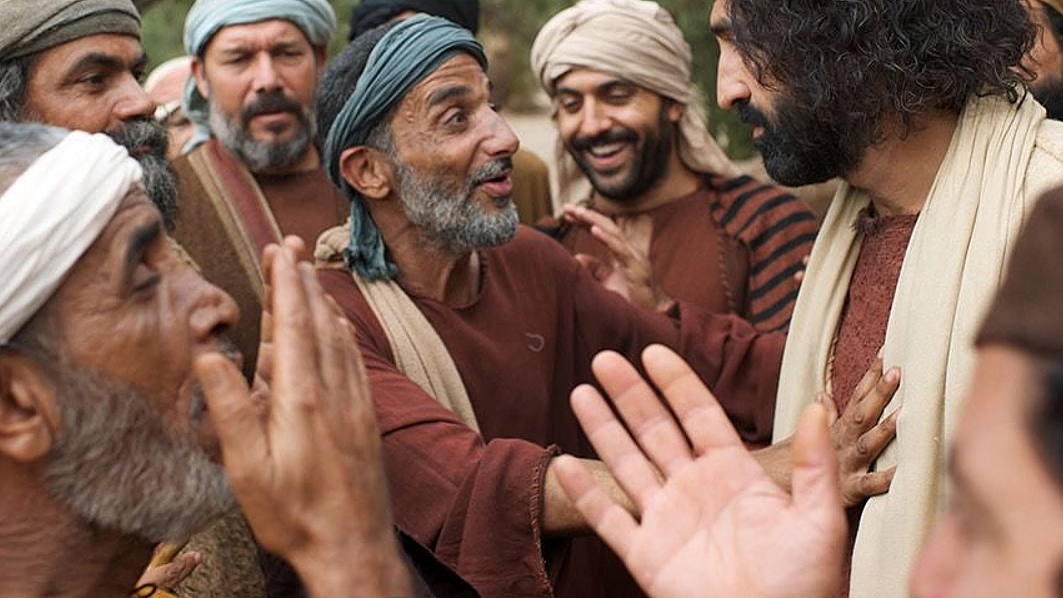 Dad felt that we always had reasons to thank God regardless of our circumstances. (My daddy died at 51, after 10 years of a devastating illness. If he could find reasons to give thanks, all the rest of us should be able to find ample reasons!) He felt we could always thank God for who he is, what he has done for us, what he has promised to do in our future, and what he is continuing to do in our lives. Dad's infamous line in his "prayer sermon" went something like this:
Dad felt that we always had reasons to thank God regardless of our circumstances. (My daddy died at 51, after 10 years of a devastating illness. If he could find reasons to give thanks, all the rest of us should be able to find ample reasons!) He felt we could always thank God for who he is, what he has done for us, what he has promised to do in our future, and what he is continuing to do in our lives. Dad's infamous line in his "prayer sermon" went something like this:
Even pigs grunt in appreciation to their master when he brings them their slop. SURELY, we should be able to pause long enough to include a few words of thanksgiving to God for all he has done for us.
While I know this may not be the most appetizing image, nor is it the deepest theological statement known to Christian scholarship, my dad's words colorfully make the point.
In many ways, the way we have come to celebrate Thanksgiving demonstrates my dad's point. We dedicate one holiday a year to giving thanks to our Creator for his blessings, his care for our world, and his generous grace for us. I fear that even in our best years, shopping and football swallow most of the "giving thanks" focus of the Thanksgiving holiday.
I guess we shouldn't be surprised. Thankfulness has never been very high on the chart for God's human creations. Rather than give thanks for a beautiful and unspoiled universe God had made for them, Adam and Eve fixated on the one thing forbidden them. They rejected all of God's goodness and sinned. Rather than thanking God for their miraculous deliverance from Egypt and Pharaoh's army, the children of Israel complained. They complained about the desert. They complained about how bland the manna was that God had provided for them. They complained about not having leeks and onions.

When the next generations of Israelites passed into the Promised Land, they also forgot about giving thanks. They forgot the LORD who had given them land, preserved them in the wilderness, spoke to them in the Law, and provided a tangible symbol of his presence in the cloud and the pillar of fire. Once they settled the land, despite the repeated warnings from Moses, they didn't remember all God had done and they didn't remember to give thanks.
We probably shouldn't be surprised, then, by nine men cured of leprosy. After previously teaching his disciples about being "unworthy servants" (Luke 17:7-10), Jesus healed a group of ten men who had leprosy (Luke 17:11-19). These men were outcasts from their villages and lived on the thinnest margins of human survival. They hung together in a pack like animals, scrounging for scraps of food to eat. When Jesus saw them, he cleansed them of their leprosy. He sent them to the priests to be reintegrated into life and community. Only one of these men came back to thank Jesus. He returned, "praising God in a loud voice." He "threw himself at Jesus' feet" and thanked the Lord, face down to the ground. He was thankful!
Jesus then asked the penetrating question:
Were not all ten cleansed? Where are the other nine? (Luke 17:17).
Then, Jesus affirmed the thankfulness of the one man who returned. His words are instructive:
"Rise and go; your faith has made you well."
While Jesus had cleansed the other nine men of their leprosy, they were still not whole. They weren't fully healed down to their heart. Ony their skin had been made well. Healing of the soul-saving kind always involves the heart. Their hearts had not been healed.
How do we know?
In much the same way, our salvation is only skin deep until our love for Jesus leads us to fall face down and thank God. Thankfulness is the language of appreciative love. We are thankful because we recognize the gracious love God has poured out on us. Our love for God is returned by our thankfulness.
I'm not sure if this episode from the life of Jesus gives us the percentages of those who are not thankful (90%) and thankful (10%). My experience suggests, 1 out of 10 being thankful seems a bit optimistic for western Christians. So many of us feel entitled. If we don't get what we want, we feel mad and that God has let us down. Most of us, I fear, seldom pause to give thanks for the overwhelming abundance of blessings, both physical and spiritual. Few of us come back to offer our heartfelt thanks to God who has blessed and entrusted us with these blessings. But...
I choose to be the 1, the 10%, the one who returns to give thanks. How about you?

And if Paul's words don't stick with us this Thanksgiving, maybe we can remember my dad's words about the pig grunting his appreciation for his slop!
Let's pause and offer the Father our heartfelt thanks for all that he has done for us. Not just today, but every day. Not just in one prayer, but in every prayer. Let's be the 1!










Reader Comments
Archived Facebook Comments